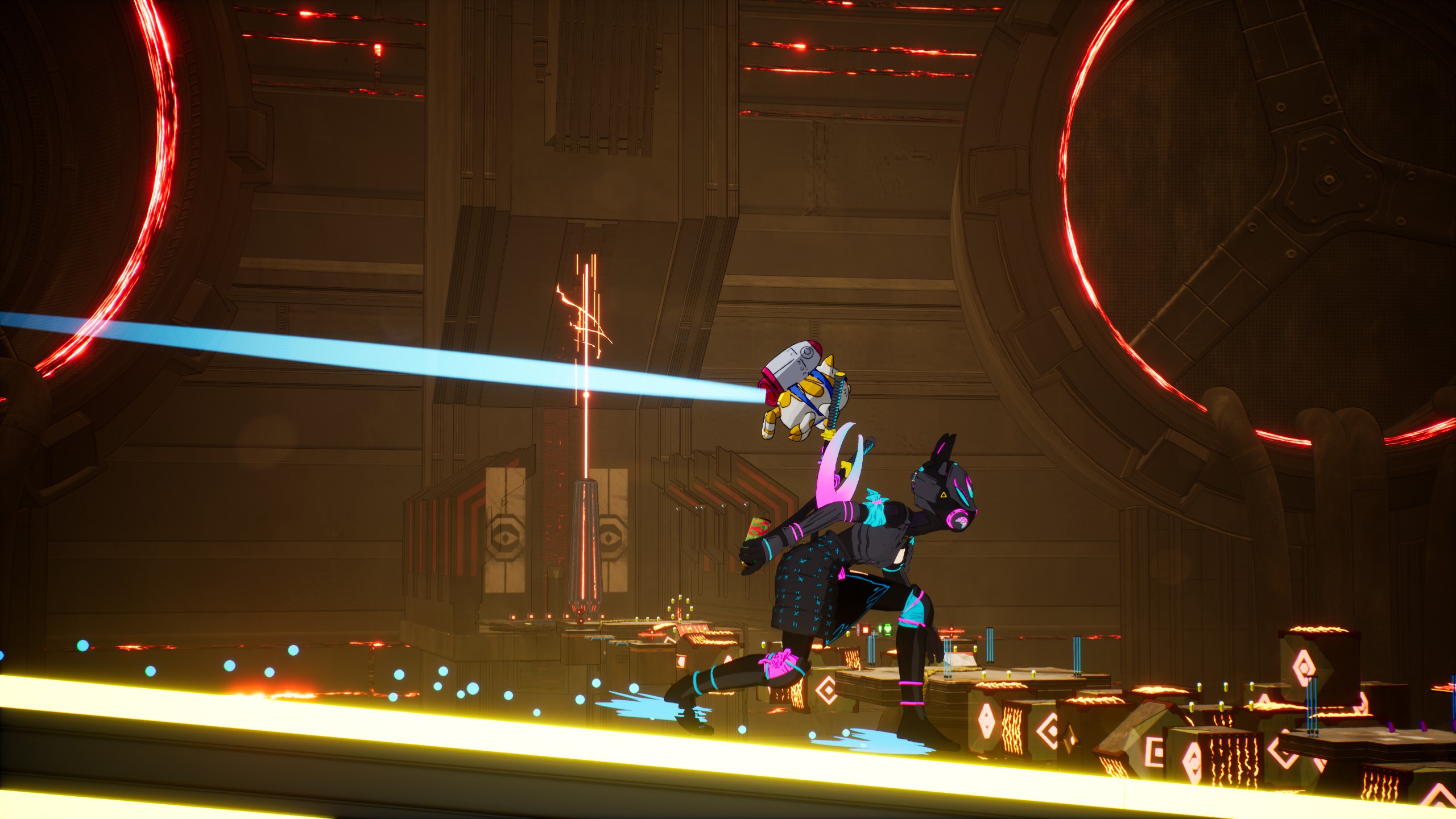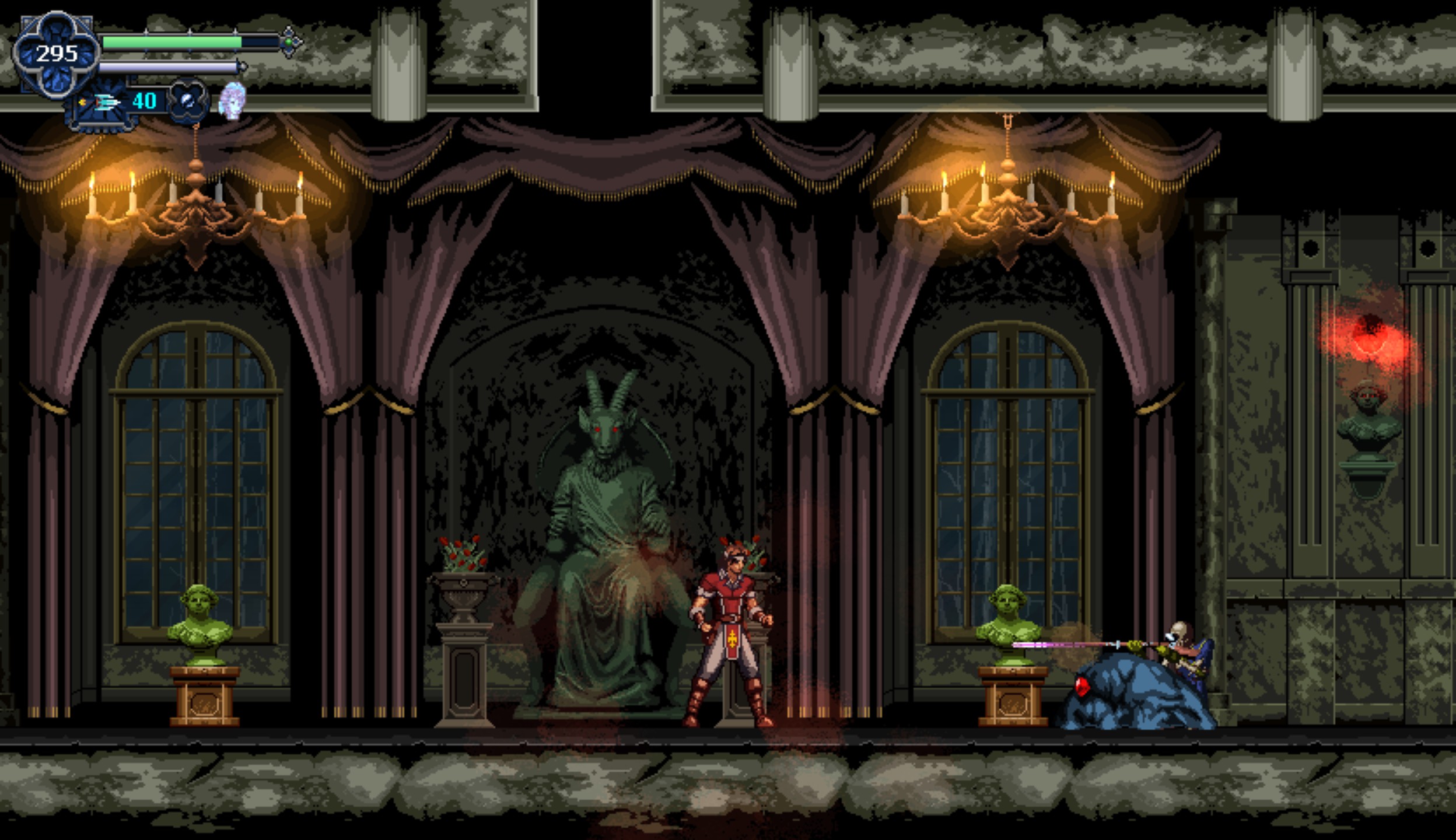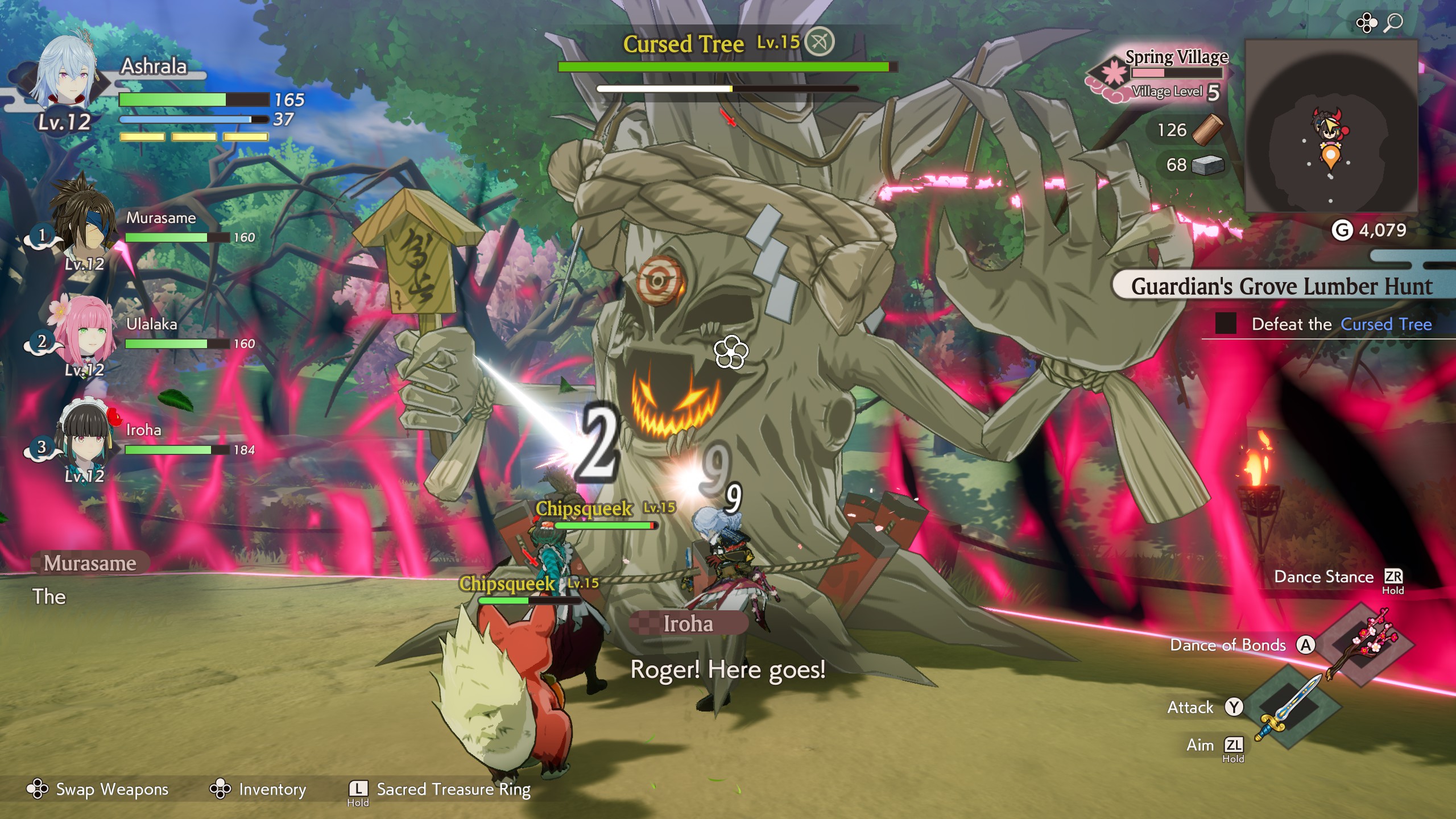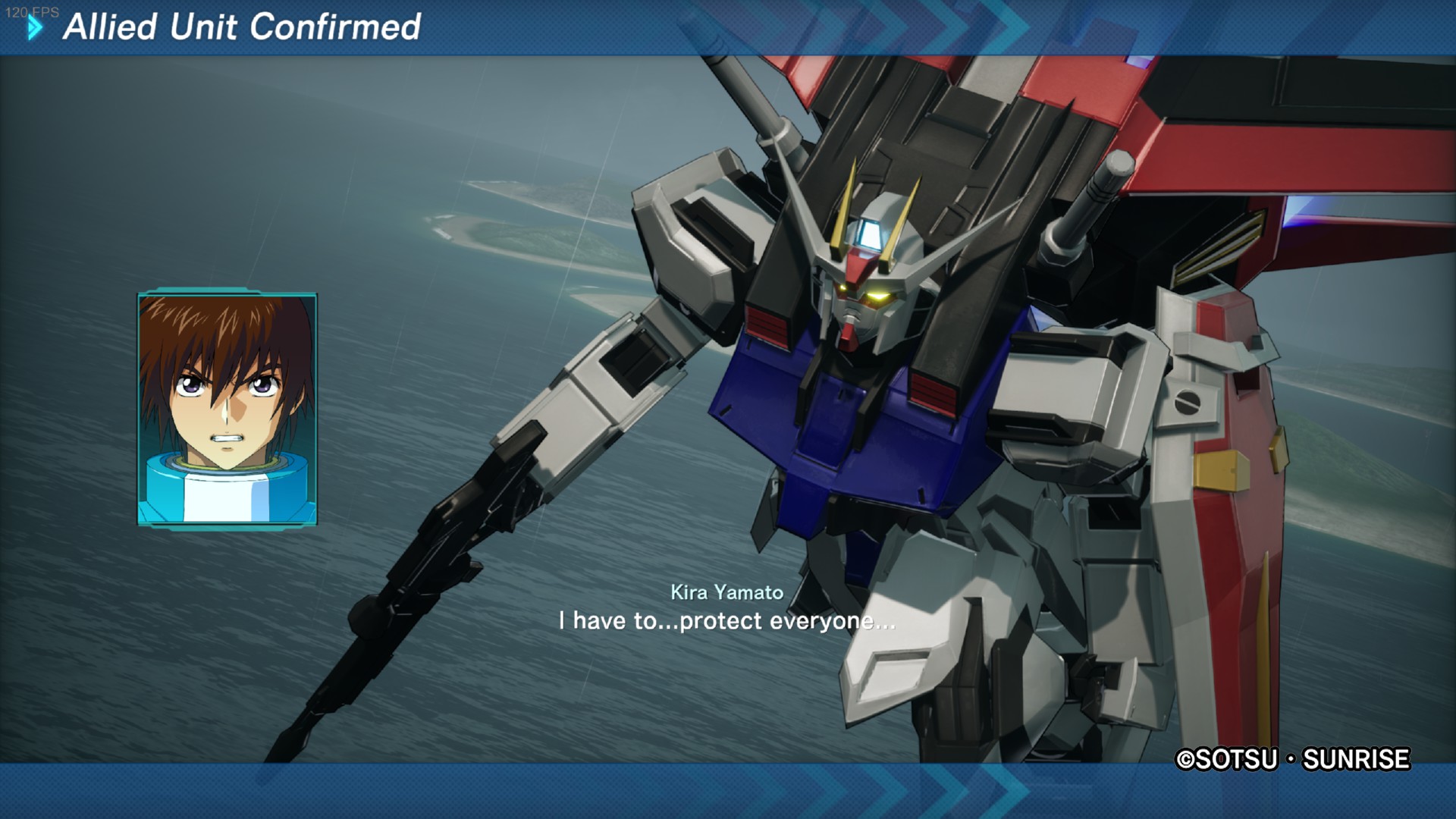It’s easy to assume RKGK/Rakugaki is akin to Jet Set Radio. I mean, it’s a game about using graffiti to fight against fascism as you paint your way through levels. Strangely, the game is more akin to the extra challenge levels in Super Mario Sunshine. The game doesn’t make a great first impression with its middling art direction, story, and characters, nor does the low difficulty of early levels do it any favours. As the game progresses, however, what seems to be a less-than-impressive showing becomes so much more, as the excellent level design and terrific platforming come together to deliver an experience that’s more than the sum of its parts.
The main character in RKGK/Rakugaki seems like something a bunch of people in a board room attempting to make something hip would have designed 20 years ago. She’s dull and her character design doesn’t do anything at all to make up for this. The game looks competent, but the environments don’t scream personality. This makes a certain amount of sense, as the city the game’s set in has been subjugated by an evil man with a stupid name who uses television screens to dull people’s emotions. Naturally, the game is primarily focused on painting graffiti over these screens.
The action is broken up into six areas with multiple levels each. Your goal is to graffiti over enough screens to unlock and beat a boss so that you can accomplish a task and get one step closer to defeating the villain. There are voiced sequences associated with each boss level, but the game is mercifully devoid of an avalanche of story sequences. I never cared about any of these and going through the game never changed that. But this is a platformer, and I absolutely do not need to care about its plot, so that’s far from a dealbreaker for me.
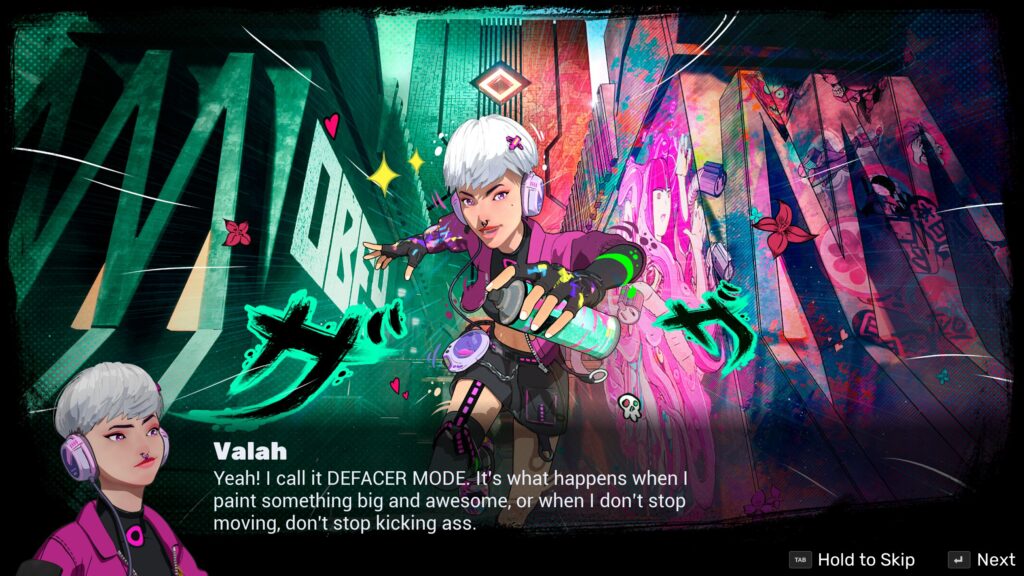
Each level sees you making it from start to finish as you collect cans of paint and use them to spray graffiti on screens. The protagonist walks around, but you’ll more often be sliding on the ground, generating a paint trail. I’m not sure what this is or why it happens, but that’s just how it is. The screens can be found all over surfaces as indicated by a number in the heads-up display and you can track how many in each level you’ve found. There’s no minigame here. You just press a button once the screen is in range and graffiti is applied automatically. It’s not much of anything, which feels like a bit of a missed opportunity.
As such, I didn’t ever feel like the graffiti aspect actually mattered. It feels like window dressing that doesn’t add much of anything. Sliding makes you go faster, but you can also double jump and glide. The glide move releases a downward paint stream that functions much like the hover in, you guessed it, Super Mario Sunshine. There’s combat, which really boils down to a simple three-hit combo. Combat is extremely simple and you’ll be varying between hitting enemies and hovering over them to damage them.
The controls are very responsive and tight and the main character’s kit is intuitive, as well as incredibly capable. Once airborne, you have three whole options to give yourself more air. I do think the main character moves a little slow for my tastes, but the gameplay here makes for a very engaging platformer. You can grab onto ledges and pull yourself up, so missing platforms won’t be a constant occurrence. Early on in the game, there’s plenty of room to manoeuvre without issue and getting to the end of the levels feels very simple. With that being said, things absolutely do not stay that way.
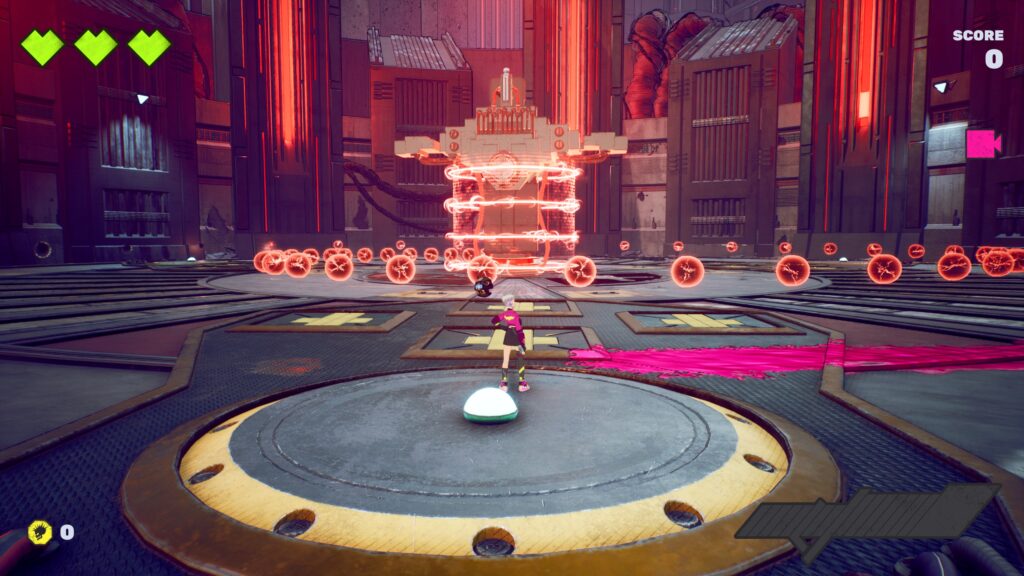
RKGK/Rakugaki is honestly a fairly challenging game overall after you get deeper into it. You’ll find a lot of tricky, moving platforms that require a fair amount of accuracy. Truthfully, this is the most involved platformer I’ve seen in quite some time. It’s not hugely challenging, but it did push me more than I can remember another recent game doing. There’s also a decent amount of variety in terms of the level design itself. Some levels have specific gimmicks and, although the design can seem simplistic at first, it definitely evolves and stays fresh throughout the game.
The boss battles at the end of each area are incredibly simple and easy in the beginning and eventually become quite difficult. The fourth and fifth bosses, for instance, have massive difficulty spikes in their third phases that aggravated me greatly. Even the final boss wasn’t as overtuned.
If you’re looking for a real challenge, collecting all of RKGK/Rakugaki‘s ghosts is where you’ll find it. Ghosts are used to purchase cosmetics or graffiti from one of the game’s stores. Many can be unlocked by completing specific challenges in each of the levels. These include beating the levels in certain times, defeating all enemies, painting over all the screens, and finding all the coins.
Doing these is no easy task. Beating levels within the specified time limits is very tough, to the point that it might seem impossible at first glance. Similarly, actually finding all the graffiti can be tough as well, as some are hidden. This can massively increase the time spent in the game. I truly don’t care for the aesthetic, characters, or story here, but RKGK/Rakugaki is a great platformer that’s well worth the time for any genre fans. It just probably won’t seem like it at first. Putting the time in will really shine a light on how much it excels in many ways.
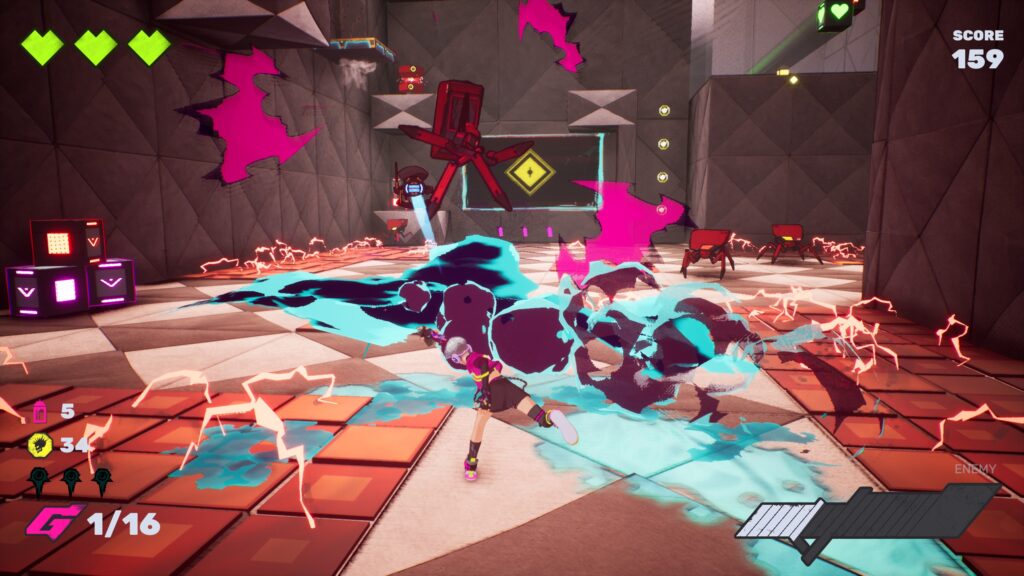
RKGK/Rakugaki: Quick and filled with terrific platforming segments, the game makes up for a somewhat lackluster presentation with excellent gameplay and strong level design. – Andrew Farrell
Mullet Madjack PC review – Robocide | Heading Out PC review – Fear of the park | Phantom Fury PC review – More than a half-life |

